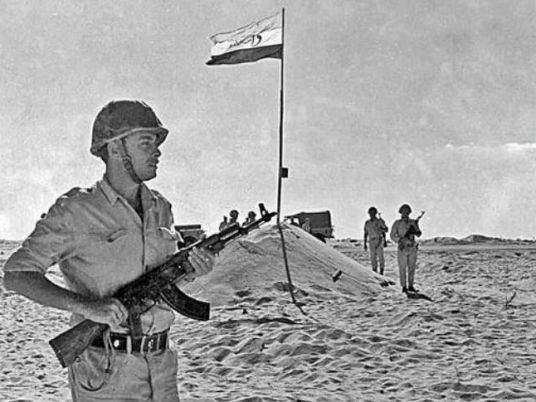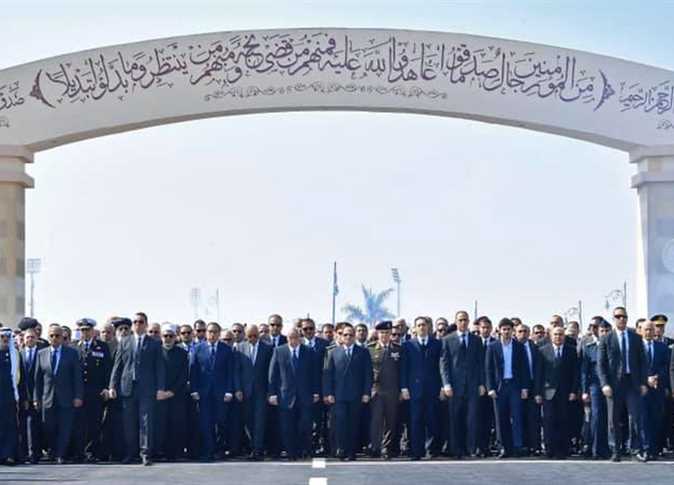Around one year ago on 6 October 2011, I had lunch with a number of friends, most of whom were young German researchers specializing in the study of Middle Eastern affairs and the history of Africa.
I do not exactly remember how we came to discuss the 6 October War when one of them started giving a long account of the war suggesting that it was only a fake war agreed on between the Egyptian and Israeli leaderships. She added that Sadat told the US administration that he accepts to recognize Israel and to have permanent peace with Israelis but that he would not be able to implement that agreement without engaging in a mock battle to save face in front of his people.
She said that it was agreed that Egyptian forces would advance 10 kilometers and then stop for negotiations. Egyptian and Israeli army generals, according to her account, opposed the plan when it was put into force and said they were not informed of it, which led to structural changes in the two armies soon after the start of the war.
I listened to her account, my brain unreceptive of what she said. With foolish and arrogant ignorance I laughed what she said off and described her account of the war as ridiculous. This cannot possibly have happened and everything, I thought, while the soundtracks of Egyptian epic films on the October war thumping in my ears.
She told me about the sources of her information, which included documents from the US State Department and the Israeli investigations committee formed to examine the causes of the loss in the 1973 war as well as research work conducted by British and German researchers. Then she asked me what sources I had for my information.
My sources of information were scriptwriters, movies starring actor Mahmoud Yassin and the entertaining gossipy accounts of the war written by journalist Mohamed Hassanein Heikal as well as contradictory testimonies by overconfident Egyptian army generals.
There is hardly any documented information about the October war available for the Egyptian public. In fact, lots of basic information about it is missing; for instance, we do not know how many soldiers were martyred in the war.
To find the most basic information about the war, you have to wade through hundreds of pages of books recounting the memoirs of generals who only happened to accompany ex-President Sadat in ceremonies and visits but who never went to war. Those generals would then put those scattered accounts together in a book registering their acts of heroism. And even when you read those books you would hardly find anything worthwhile.
The German researcher's question continues to haunt me. “What is your source of information?”
Around one month ago, Israeli authorities released the defense ministry's documents on military operations in the October war, while here in Egypt real history gets buried under the weight of contradictory and perhaps illusory accounts of the war.
President Mohamed Morsy has recently honored Major General Galal Hareedy, one of the military leaders responsible for the 1967 defeat, for achievements that nobody knows about. Then a month later, Morsy honored Saad el-Shazly, the army chief of staff during the war, and former president Anwar El Sadat, who was Shazly’s opponent.
Everyone is becoming a hero of some sort and is getting a piece of Morsy's cake. He may give away as many medals as he wishes; why should that bother me?
But what about our right to know the truth? Where are the documents for the October and the 1967 wars? What happened in the 1952 coup? Why do the old leaderships insist on controlling our present, future and past even in 2012?
Egyptians should think of these questions and demand a law to guarantee the freedom of information and keep asking what sources people have for their information on the October War.
Translated from Al Masry Al Youm by Dina Zafer



